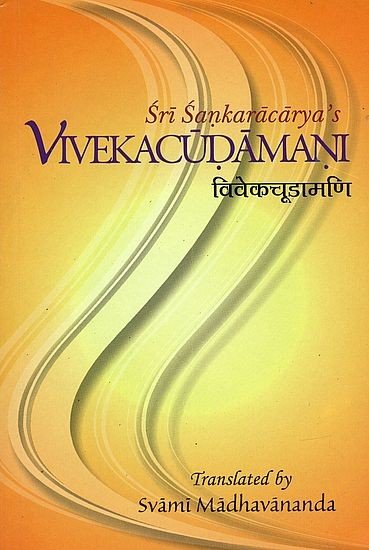Vivekachudamani
by Shankara | 1921 | 49,785 words | ISBN-13: 9788175051065
The Vivekachudamani is a collection of poetical couplets authored by Shankara around the eighth century. The philosophical school this compilation attempts to expose is called ‘Advaita Vedanta’, or non-dualism, one of the classical orthodox philosophies of Hinduism. The book teaches Viveka: discrimination between the real and the unreal. Shankara d...
Verse 74
परस्परांशैर्मिलितानि भूत्वा
स्थूलानि च स्थूलशरीरहेतवः ।
मात्रास्तदीया विषया भवन्ति
शब्दादयः पञ्च सुखाय भोक्तुः ॥ ७४ ॥parasparāṃśairmilitāni bhūtvā
sthūlāni ca sthūlaśarīrahetavaḥ |
mātrāstadīyā viṣayā bhavanti
śabdādayaḥ pañca sukhāya bhoktuḥ || 74 ||74. Being united with parts of one another and becoming gross, (they) form the gross body. And their subtle essences form sense-objects – the group of five such as sound, which conduce to the happiness of the experiencer, the individual soul.
Notes:
[Being united &c.—The process is as follows: Each of the five elements is divided into two parts, one of the two halves is further divided into four parts. Then each gross element is formed by the union of one-half of itself with one-eighth of each of the other four.
Subtle essences—Tanmatrás.
Form sense-objects—by being received by the sense-organs.
Sound and the rest—sound, touch, smell, taste and sight.
Happiness &c.—Happiness includes its opposite,—misery also.]
